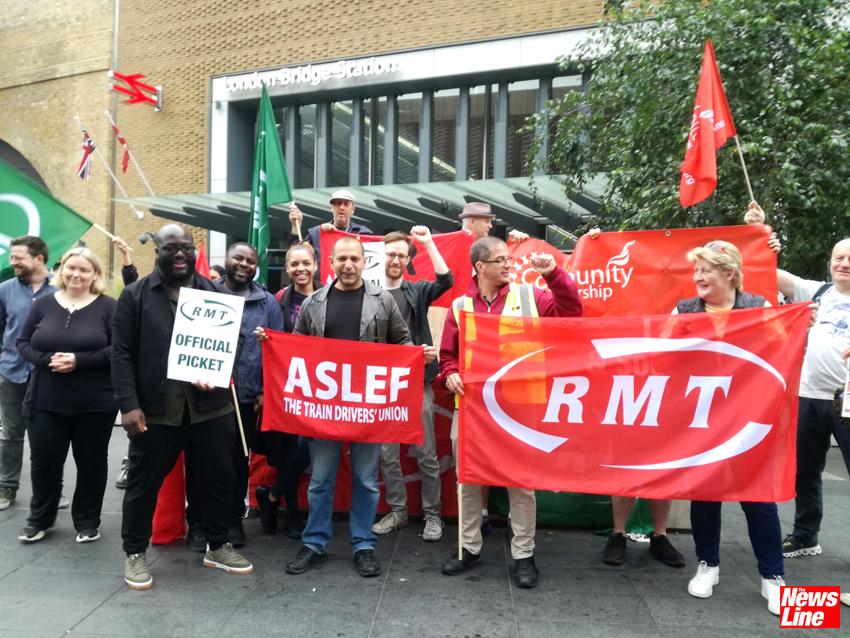RMT General Secretary Mick Lynch has welcomed the overwhelming strike vote by ASLEF members in eight train operating companies, setting the scene for a powerful national strike of the entire rail network.
RMT leader Lynch said yesterday: ‘We congratulate our friends in ASLEF for their superb ballot result and the huge mandate they have for strike action on the railways.
‘It goes to show that railway workers across every grade from cleaners, catering staff guards, maintenance staff and drivers are fed up with real terms pay cuts, attacks on job security and working conditions.
‘When railway unions and others unite, they are an unstoppable force in the workplace and wider society.’
Lynch was speaking after ASLEF announced that members at eight train companies have voted overwhelmingly for strike action in a dispute over pay.
Announcing the 90%-plus strike ballot results late on Monday afternoon, ASLEF General Secretary Mick Whelan said: ‘Many of our members – who were, you will remember, the men and women who moved key workers and goods around the country during the pandemic – have not had a pay rise since 2019.
‘With inflation running at north of 10% that means those drivers have had a real terms pay cut over the last three years. We want an increase in line with the cost of living – we want to be able to buy, in 2022, what we could buy in 2021.
‘It’s not unreasonable to ask your employer to make sure you’re not worse off for three years in a row. Especially as the train companies are doing very nicely, thank you, out of Britain’s railways – with handsome profits, dividends for shareholders, and big salaries for managers – and train drivers don’t want to work longer for less.
‘Being a train driver is a professional, technical, and safety-critical job. It takes a year to train a driver who can be responsible for the lives of up to 1,300 people on any journey.
‘We don’t think we’re special; we believe no worker in this country should put up with pay cuts year after year just because this government has allowed inflation to rise. Whatever happened to the Tory wish for good, well-paid, jobs? Obviously that’s only for the CEOs, not for the workers doing the jobs.
‘And, don’t forget, if a train driver doesn’t get a cost of living increase, it won’t mean that a nurse, or care worker, or cleaner will get one. This isn’t – or shouldn’t be – about setting one worker against another.
‘Wage rises aren’t exacerbating inflation, anyway. Excess profiteering is. The government isn’t asking companies to cut profits or dividend payments to help manage inflation. Wages are chasing prices, not putting them up.’
ASLEF strike votes at the eight companies were:
- Arriva Rail London: Yes: 637 (98.9%) No: 7 (1.1%) Turnout: 92.5%;
- Chiltern Railways: Yes: 217 (92.3%) No: 18 (7.7%) Turnout: 86.4%;
- Great Western: Yes: 1,049 (86.1%) No: 170 (13.9%) Turnout: 86.3%;
- LNER: Yes: 323 (88.5%) No: 42 (11.5%) Turnout: 89.0%;
- Northern Trains: Yes: 1,562 (95.2%) No: 78 (4.8%) Turnout: 88.5%;
- Southeastern: Yes: 741 (91.6%) No: 68 (8.4%) Turnout: 86.2%;
- TransPennine Express: Yes: 426 (94.2%) No: 26 (5.8%) Turnout: 84.8%;
• West Midlands Trains: Yes: 636 (89.6%) No: 74 (10.4%) Turnout: 83.5%.
